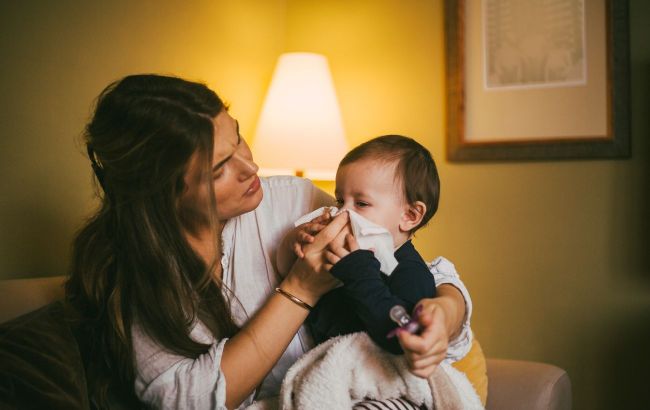Doctor explained why children get sick more often than adults
 Why children get sick with acute respiratory infections more often than adults (photo: Getty Images)
Why children get sick with acute respiratory infections more often than adults (photo: Getty Images)
Children of preschool and school age are more prone to acute respiratory infections than adults. This is associated with several factors, and there are ways to help the child's immune system mature faster.
Dr. Serhii Kramariov, Doctor of Medical Sciences, Professor, Head of the Department of Pediatric Infectious Diseases at the National University of Ukraine named after O. O. Bogomolets, and Honored Doctor of Ukraine, explained why children under 12 are more susceptible to illnesses than older children and adults in an interview with RBC-Ukraine.
According to the expert, the maturation of the immune system in children occurs quite slowly.
"In a child, the immune system reaches the level of an adult's immune system at 10-12. Before this age, the child's body is unable to rapidly synthesize interferons, which are the first line of defense in case of viral infections. In adults, this defense mechanism activates within the first two days of virus infection, while in children, this process may be delayed to the 3rd-5th day. In other words, the interferon production is delayed, allowing the virus to accumulate in the body, leading to a viral infection," explained Kramariov.
He added that, in addition, children have an insufficient synthesis of immunoglobulins, especially secretory immunoglobulins A, which are also the first line of defense against infections.
"An important concept is the barrier function of mucous membranes in the respiratory and gastrointestinal tract. The mucous membrane itself acts as a hindrance to the penetration of viruses and bacteria. However, this barrier function is not as developed in children as in adults, making it easier for viruses and bacteria to penetrate cells. To exert their pathogenic effect, they need to attach to the cells of mucous membranes and then enter these cells. Only then does the disease develop," emphasized the doctor.
"There are also epidemiological reasons for the susceptibility to illness. In daycare or school, close contact with other children is inevitable. Adults usually don't have such clusters as in children's groups. Due to these clusters, the transmission of respiratory infection agents is facilitated," the doctor added.
"Essentially, one can say that during the first 10-12 years of life, the immune system of children learns to respond to pathogens that can cause diseases. It undergoes training, and acquires immunological memory, hence children get sick more often than adults. The older the child, the more 'experience' their immune system has in combating various infectious agents.
Frequent, recurrent (i.e., repeated) respiratory infections in children are, in most cases, a conditional norm," emphasizes Serhii Kramariov.
This material is for informational purposes only and should not be used for medical diagnosis or self-treatment. Our goal is to provide readers with accurate information about symptoms, causes, and methods of detecting diseases. RBС-Ukraine is not responsible for any diagnoses that readers may make based on materials from the resource. We do not recommend self-treatment and advise consulting a doctor in case of any health concerns.

